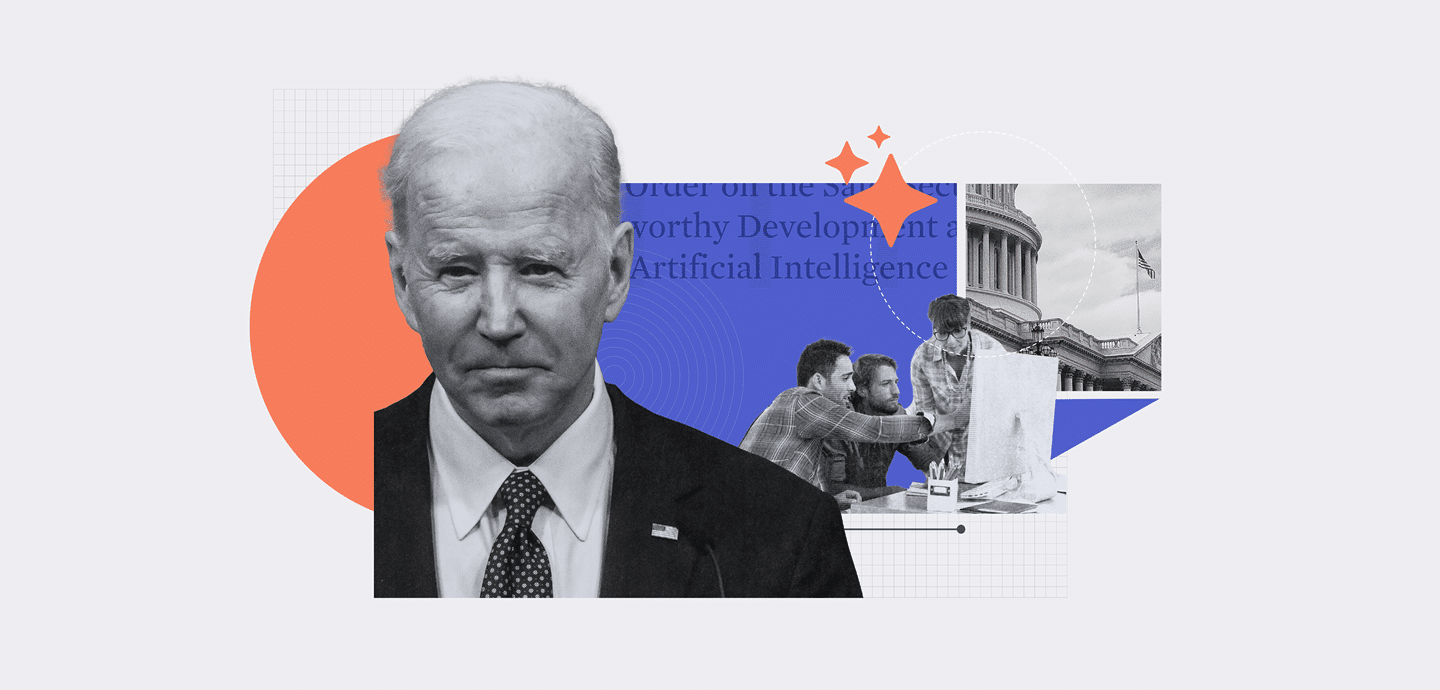
Why Italy Said No to ChatGPT – A Deep Dive Into the Controversy
Table Of Contents:
- 1) The ChatGPT Ban in Italy A Wake-up Call for AI Developers and Users
- 2) Understanding ChatGPT and Its Impact on Information Privacy and GDPR
- 3) Is There a Need for Stringent Privacy Measures for AI Companies?
- 4) The Need for Compliance With GDPR and Data Protection Laws
- 5) Why Did Over 1,000 AI Experts Call for a Pause in Creating Giant AIs?
- 6) The Amorality of AI The Need for Ethical Considerations in AI Design
- 7) Invasive AI Technologies Contribute to the Erosion of Privacy
- 8) The Proliferation of AI-generated Misinformation and Public Opinion Manipulation
- 9) Challenges in Understanding ChatGPT’s Decision-Making Process and GDPR Compliance
- 10) Challenges of Obtaining Clear and Explicit Consent in AI Systems
- 11) The Right to be Forgotten and AI: Challenges in Implementing GDPR Provisions
- 12) Potential Violation of GDPR’s Restrictions on Automated Decision-Making
- 13) The Case Against Banning Chat GPT
- 14) OpenAI’s Decision to Disable ChatGPT in Italy: Privacy and GDPR Compliance
- 15) Final Thoughts on the ChatGPT Ban in Italy: A Precedent for AI Regulation?
The ChatGPT Ban in Italy A Wake-up Call for AI Developers and Users
The recent ban on ChatGPT in Italy has raised concerns about AI developers’ and users’ ethical and social responsibility. As AI technology continues to outpace professional, social, legal, and institutional controls, addressing the potential risks associated with these advancements becomes increasingly important. ChatGPT’s widespread applicability and natural language model make it an attractive tool, but its 175 billion parameters in its neural network also make it problematic.
The lack of ethical and social responsibility in AI development has led to biased AI systems that can produce misleading information. This bias is inherent in the data collected, the algorithms that process the data, and the outputs regarding decisions and recommendations. Furthermore, the invasive nature of AI technologies, such as ChatGPT, affects privacy, with some experts claiming that privacy has been extinguished. AI systems like ChatGPT are also amoral, possessing no moral compass unless explicitly encoded by the designer, who may not be an expert in ethics or unanticipated outcomes.
The ban on ChatGPT in Italy serves as a wake-up call for AI developers and users to address these issues and ensure that AI technologies are developed and used responsibly. By focusing on ethical and social responsibility, developers can create AI systems that are more transparent, unbiased, and respectful of privacy, ultimately leading to a more secure and trustworthy AI landscape.
Understanding ChatGPT and Its Impact on Information Privacy and GDPR
ChatGPT is an advanced AI language model that has gained significant attention for its ability to generate human-like responses in various applications, including social media marketing, customer service, and content creation. Its underlying technology relies on a dense neural network with over 175 billion parameters and sophisticated natural language processing capabilities. By leveraging reinforcement learning from human feedback, ChatGPT can generate contextually relevant responses based on user input.
However, the widespread adoption of ChatGPT raises concerns about information privacy and GDPR implications. As an AI model that learns from vast amounts of data available on the internet, ChatGPT may inadvertently access and process personal information, potentially violating GDPR regulations. Furthermore, the AI’s reliance on internet-based data sources can lead to the dissemination of incorrect or unverified information, posing challenges for businesses and individuals who rely on its output.
Despite its potential benefits, ChatGPT’s lack of transparency and inherent biases can also contribute to privacy concerns. The AI model’s decision-making process remains largely opaque, making ensuring compliance with GDPR’s principles of fairness, transparency, and accountability challenging. Additionally, biases present in the training data can lead to discriminatory outcomes, further complicating the ethical use of ChatGPT in various industries.
While ChatGPT offers numerous advantages for businesses and individuals, its impact on information privacy and GDPR compliance must be carefully considered. Organisations employing ChatGPT should implement robust data protection measures and continuously monitor the AI’s output to ensure adherence to privacy regulations and ethical standards.
Is There a Need for Stringent Privacy Measures for AI Companies?
The importance of implementing stringent privacy measures for AI companies cannot be overstated. As AI technologies like Chatbots evolve, they collect and process vast amounts of user data, making it crucial for companies to prioritise data protection. Existing regulations, such as the General Data Protection Regulation (GDPR), govern AI technology usage and mandate strict adherence to data privacy principles. These regulations aim to protect users’ personal information and ensure that companies handle data responsibly.
Failure to prioritise privacy concerns can have severe implications for AI companies. Non-compliance with regulations like GDPR can result in hefty fines, reaching up to 4% of a company’s annual global turnover or €20 million, whichever is higher. Moreover, neglecting privacy concerns can lead to a loss of consumer trust, damaging a company’s reputation and potentially causing a decline in user engagement. In the long run, this could hinder innovation and the development of new AI technologies. Furthermore, inadequate privacy measures can expose users to risks such as identity theft, fraud, and other malicious activities, emphasising the need for AI companies to take data protection seriously.
The Need for Compliance With GDPR and Data Protection Laws
The significance of complying with GDPR and data protection laws in the context of AI adoption and market growth cannot be overstated. As AI systems like ChatGPT require vast amounts of data for training and processing, ensuring that this data is collected, stored, and used in compliance with data protection regulations is crucial. Non-compliance can lead to hefty fines, reputational damage, and loss of consumer trust.
In the European Union, the General Data Protection Regulation (GDPR) has set strict data protection and privacy guidelines. According to a report by the International Association of Privacy Professionals (IAPP), since its implementation in 2018, GDPR has led to over €329 million in fines. This highlights the financial risks associated with non-compliance. Furthermore, a study by the Ponemon Institute found that the average data breach cost in 2020 was $3.86 million, emphasising the potential financial impact of inadequate data protection measures.
Compliance with data protection laws also plays a vital role in fostering consumer trust and promoting the ethical use of AI. As AI systems become more integrated into various aspects of daily life, ensuring that these technologies respect user privacy and adhere to ethical standards is essential for widespread adoption. A survey conducted by the European Commission revealed that 62% of Europeans are concerned about the potential misuse of their personal data by AI systems. By adhering to GDPR and other data protection regulations, organisations can address these concerns and build trust with their users.
Complying with GDPR and data protection laws is of paramount importance in the context of AI adoption and market growth. Ensuring that AI systems like ChatGPT operate within the boundaries of these regulations not only mitigates financial risks but also fosters consumer trust, and promotes the ethical use of AI technologies.
Why Did Over 1,000 AI Experts Call for a Pause in Creating Giant AIs?
The call from over 1,000 AI experts to temporarily halt the development of giant AIs stems from concerns regarding ethical and social responsibility. Large language models like ChatGPT pose potential risks, such as the amplification of biases, invasion of privacy, and the spread of misinformation. These models learn from vast amounts of data, which may contain inherent biases, leading to biased outputs and decisions. Additionally, the opacity of AI systems makes it difficult to understand how they make decisions, raising concerns about transparency and accountability.
Despite these risks, large language models can have beneficial effects. They can enhance natural language processing tasks, improve information retrieval, and contribute to advancements in various fields, such as healthcare, finance, and education. However, it is crucial to strike a balance between harnessing the potential benefits and addressing the ethical concerns associated with these technologies. Implementing regulations like the General Data Protection Regulation (GDPR) can help protect user privacy and ensure responsible AI development. Addressing these concerns can create a more secure and ethical environment for AI applications, allowing society to reap the benefits while minimising potential risks.
The Amorality of AI The Need for Ethical Considerations in AI Design
The rapid development of artificial intelligence (AI) has brought forth numerous ethical concerns that must be addressed to ensure responsible and transparent implementation. One of the primary issues is the presence of biases in AI systems, which can lead to unfair and discriminatory outcomes. For instance, a study conducted by MIT and Stanford University found that facial recognition software had a 34.7% error rate in identifying darker-skinned women, compared to a 0.8% error rate for lighter-skinned men. This highlights the importance of addressing biases in AI design to prevent perpetuating existing inequalities.
Privacy concerns are another critical aspect of ethical AI design. With the implementation of the General Data Protection Regulation (GDPR) in 2018, organisations must protect user data and ensure its appropriate use. However, AI systems often rely on vast amounts of data, which can lead to potential privacy breaches and misuse of personal information. According to a 2019 International Association of Privacy Professionals survey, 56% of respondents identified AI as a top privacy risk for their organisations. This underscores the need for robust privacy measures in AI development to safeguard user data and maintain trust.
Promoting transparency and responsible development is essential in balancing innovation and ethics. AI developers must be held accountable for their creations and ensure that their systems are designed with ethical considerations in mind. This includes being transparent about AI systems’ data sources, algorithms, and potential biases. By fostering a culture of ethical AI design, we can harness the benefits of this technology while mitigating its potential risks and negative consequences.
Opaque Nature
The opaque nature of AI technologies like ChatGPT raises concerns about their functioning as a ‘black box.’ This lack of transparency can have significant implications on trust and decision-making. AI systems like ChatGPT rely on complex algorithms and vast amounts of data to generate outputs, making it difficult for users to understand the underlying processes and rationale behind their decisions. This obscurity can lead to mistrust and scepticism, as users may question the reliability and accuracy of the AI-generated outputs.
Moreover, the opacity of AI systems can also result in unintended consequences, such as biased decision-making and privacy concerns. For instance, a study by the European Union Agency for Fundamental Rights (2020) found that 62% of Europeans are concerned about the potential misuse of AI in decision-making processes. Additionally, the implementation of the General Data Protection Regulation (GDPR) highlights the importance of transparency and accountability in AI systems, as it requires organisations to provide clear explanations for automated decisions that significantly impact individuals.
The ‘black box’ nature of AI technologies like ChatGPT poses challenges regarding trust and decision-making. To address these concerns, it is crucial to develop methods for increasing transparency and accountability in AI systems, ensuring that they align with ethical standards and legal frameworks such as the GDPR.
Biased Algorithms
Inherent biases in AI systems like ChatGPT stem from the data they are trained on, the algorithms used, and the outputs they generate. These biases can lead to discriminatory or misleading results, as the AI may inadvertently perpetuate existing societal prejudices. For instance, if the training data contains biased language or stereotypes, the AI system may adopt these biases and produce outputs that reflect them.
A study by Caliskan et al. (2017) demonstrated that AI systems could acquire biases present in the text corpus they are trained on, leading to biased associations between words and concepts. In the case of ChatGPT, its training data comes from a vast array of internet sources, which may contain biased or misleading information. Consequently, the AI system may unintentionally generate outputs that reflect these biases.
Moreover, the algorithms used in AI systems can also contribute to biased outputs. For example, if the algorithm prioritises certain features over others, it may inadvertently favour specific groups or perspectives. This can result in discriminatory or misleading outputs, as they may not accurately represent the diverse range of opinions and experiences present in society.
Biases in AI systems like ChatGPT can arise from the data they are trained on, the algorithms used, and the outputs they generate. These biases can lead to discriminatory or misleading results, which can have significant implications for information privacy and GDPR compliance. To mitigate these biases, it is crucial to develop AI systems with transparency, fairness, and accountability in mind, ensuring that they are trained on diverse and representative data and that their algorithms are designed to minimise bias.

Invasive AI Technologies Contribute to the Erosion of Privacy
Invasive AI technologies, such as ChatGPT, contribute to the erosion of privacy by collecting and processing vast amounts of personal data, often without users’ explicit consent. These AI systems analyse user behaviour, preferences, and interactions to generate personalised content and recommendations. However, this data collection and analysis can lead to unintended consequences, such as the exposure of sensitive information, profiling, and discrimination.
Shoshana Zuboff, a prominent scholar in the field of surveillance capitalism, claims that privacy has been extinguished and is now a “zombie.” According to Zuboff, invasive AI technologies are a significant factor in the extinction of privacy. She argues that these technologies enable corporations and governments to collect, analyse, and exploit personal data on an unprecedented scale, leading to a loss of individual autonomy and control over one’s own information.
The General Data Protection Regulation (GDPR) was introduced in the European Union to address these concerns and protect individual privacy. GDPR imposes strict rules on data collection, processing, and storage, requiring organisations to obtain explicit consent from users before collecting their personal data. Additionally, GDPR mandates that organisations implement appropriate security measures to protect personal data from unauthorised access and data breaches.
Despite these regulations, invasive AI technologies continue to pose challenges to privacy. As AI systems become more sophisticated and integrated into various aspects of daily life, the potential for privacy violations increases. To mitigate these risks, it is crucial for policymakers, technologists, and society as a whole to engage in ongoing discussions about the ethical implications of AI and develop strategies to protect individual privacy in the age of invasive AI technologies.
The Proliferation of AI-generated Misinformation and Public Opinion Manipulation
The rapid advancement of artificial intelligence (AI) systems has led to the development of sophisticated tools capable of generating compelling fake content. This poses a significant threat to information privacy and the integrity of public discourse. According to a study by the Oxford Internet Institute, 70% of countries have experienced organised disinformation campaigns, with AI-generated content playing a crucial role in spreading misinformation.
AI systems, such as deep fake technology, can create realistic images, videos, and text nearly indistinguishable from authentic content. This has severe implications for spreading misinformation and manipulating public opinion. For instance, a 2019 report by the Global Disinformation Index estimated that the global cost of online misinformation is $78 billion annually, with AI-generated content contributing significantly to this figure.
The widespread use of AI-generated content can undermine trust in institutions, media, and democratic processes. A 2020 study by the Pew Research Centre found that 64% of adults in the United States believe that misinformation significantly impacts public confidence in the government. As AI systems continue to improve, the potential for misinformation and manipulation of public opinion will only increase, necessitating the development of robust countermeasures and regulatory frameworks to protect information privacy and uphold the integrity of public discourse.
Challenges in Understanding ChatGPT’s Decision-Making Process and GDPR Compliance
Understanding ChatGPT’s decision-making process poses significant challenges due to its opaque nature as an AI ‘black box.’ The lack of transparency in how it works, makes decisions and the reliability of its judgements and recommendations raises concerns about accountability and compliance with GDPR’s transparency requirements. The vast data lake and the speed at which ChatGPT operates further exacerbate these issues, as minor errors can accumulate into massive misunderstandings.
Holding ChatGPT accountable for its actions is difficult due to the intangibility of its decision-making process. Ensuring compliance with GDPR’s transparency requirements necessitates a clear understanding of how the AI system processes personal data, which is currently not easily achievable. Moreover, the potential for ChatGPT to generate incorrect or biased information based on its training data and internet-derived knowledge poses additional challenges in ensuring that the system adheres to GDPR’s principles of accuracy and fairness.
The challenges in understanding ChatGPT’s decision-making process, holding the system accountable for its actions, and complying with GDPR’s transparency requirements stem from the inherent opacity of AI systems, the vast data and speed at which they operate, and the potential for generating incorrect or biased information. Addressing these challenges is crucial for ensuring the ethical and responsible use of AI technologies like ChatGPT in various applications, including information privacy and GDPR compliance.
Data Processing
AI systems like ChatGPT process vast amounts of personal data, raising concerns about their alignment with the GDPR’s data minimisation principle. The data minimisation principle dictates that organisations should only collect and process the minimum amount of personal data necessary for their specific purpose. However, AI systems like ChatGPT rely on extensive datasets to train their algorithms and improve their performance.
In the case of ChatGPT, it utilises a dense neural network with over 175 billion parameters, which requires a massive amount of data for training. This data often includes personal information, which may not be directly relevant to the AI’s purpose but is still processed and stored. Consequently, the sheer volume of data processed by AI systems like ChatGPT may not adhere to the GDPR’s data minimisation principle.
Moreover, AI systems can inadvertently expose sensitive information or perpetuate biases present in the training data. This raises concerns about the ethical implications of using such systems and their compliance with GDPR regulations on data protection and privacy. While AI systems like ChatGPT offer numerous benefits and advancements, their processing of vast amounts of personal data may not align with the GDPR’s data minimisation principle, necessitating further scrutiny and regulation to ensure ethical and responsible use.
Challenges of Obtaining Clear and Explicit Consent in AI Systems
Obtaining clear and explicit consent from users for data processing in AI systems like ChatGPT presents several challenges that might potentially violate GDPR requirements. One of the primary challenges is the complexity of AI systems, which makes it difficult for users to fully comprehend the extent of data processing involved. As a result, users may be unable to provide informed consent, which is a crucial aspect of GDPR compliance.
Another challenge is the dynamic nature of AI algorithms, which continually evolve and adapt based on new data inputs. This makes it difficult to provide users with a static, comprehensive description of how their data will be processed. Consequently, obtaining explicit consent becomes a complex task, as the scope of data processing may change over time.
Moreover, AI systems often rely on large datasets to function effectively, which may include personal data from various sources. Ensuring that all data subjects have provided explicit consent for their data to be processed by the AI system can be daunting, especially when dealing with vast amounts of data.
In addition, the opacity of AI systems can make it challenging to demonstrate compliance with GDPR requirements. The ‘black box’ nature of AI algorithms makes it difficult to trace how personal data is processed and used within the system, which can hinder efforts to provide transparency and accountability to users.
Obtaining clear and explicit consent from users for data processing in AI systems like ChatGPT is a complex task that poses several challenges. If not adequately addressed, these challenges may lead to potential violations of GDPR requirements, emphasising the need for robust data protection measures and transparency in AI systems.
Data Security
The importance of data protection and security under the General Data Protection Regulation (GDPR) cannot be overstated. GDPR aims to protect the personal data of individuals within the European Union, ensuring that organisations handle this data responsibly and transparently. Non-compliance with GDPR can result in hefty fines, reaching up to 4% of a company’s annual global turnover or €20 million, whichever is higher. In addition to financial penalties, organisations may suffer reputational damage, leading to a loss of consumer trust.
AI systems like ChatGPT, while offering numerous benefits, are potentially susceptible to cyber attacks, unauthorised access, or data breaches. As these systems process vast amounts of data, including personal information, they become attractive targets for cyber criminals. A successful attack could expose sensitive data, violating GDPR regulations and putting individuals’ privacy at risk. Furthermore, AI systems may inadvertently learn and propagate biases present in the data they are trained on, leading to potential ethical concerns and GDPR violations.
To mitigate these risks, it is crucial for organisations employing AI systems like ChatGPT to implement robust security measures, such as encryption, access controls, and regular security audits. Additionally, transparency in AI development and deployment and ongoing monitoring for potential biases can help ensure compliance with GDPR and maintain public trust in these powerful technologies.
The Right to be Forgotten and AI: Challenges in Implementing GDPR Provisions
The implementation of the right to be forgotten in AI systems like ChatGPT presents numerous challenges, as the General Data Protection Regulation (GDPR) grants users the right to have their personal data deleted. One of the primary issues is the complex nature of AI systems, which often store and process data in intricate and interconnected ways. This makes it challenging to identify and erase specific user data without affecting the system’s overall functionality.
Moreover, AI systems like ChatGPT rely on vast amounts of data to improve their performance and accuracy. Deleting individual user data could hinder the system’s ability to learn and adapt, leading to decreased overall effectiveness. Additionally, the decentralised nature of some AI systems makes tracking and managing user data challenging, further complicating the process of implementing the right to be forgotten.
Another concern is the potential for AI systems to inadvertently retain user data even after it has been requested to be deleted. This could occur due to the system’s learning algorithms, which may have integrated the user’s data into its knowledge base. Ensuring the complete erasure of personal data in such cases is a complex task, and failure to do so could result in GDPR violations.
Implementing the right to be forgotten in AI systems like ChatGPT is a multifaceted challenge that requires careful consideration of the technical, ethical, and legal implications. Balancing user privacy rights with the need for AI systems to learn and improve is a delicate task. Further research and development are needed to ensure compliance with GDPR provisions.
Right to Explanation
The challenges of providing clear explanations for ChatGPT’s actions in the context of the GDPR’s right to explanation stem from the complexity of the underlying algorithms and the vast amount of data processed. As a result, it becomes difficult to trace the decision-making process and provide a transparent explanation to users.
One of the primary challenges is the “black box” nature of AI systems like ChatGPT. The intricate neural networks and algorithms that power these systems make it difficult to understand how decisions are made and how far their judgements can be relied upon. This lack of transparency poses a significant challenge in complying with the GDPR’s right to explanation, which mandates that users should be informed about how decisions affecting them are made.
Another challenge is the sheer volume of data processed by ChatGPT. The system continually updates its knowledge base from a vast data lake, making it difficult to pinpoint the exact sources of information that influence its decisions. This further complicates the task of providing clear explanations to users, as required by the GDPR.
Moreover, ChatGPT’s reliance on internet-based data sources can lead to incorrect or unverified information propagation. Ensuring that the AI system provides accurate and reliable explanations becomes a challenge, as verifying the authenticity of the data it processes is difficult.
The complexity of ChatGPT’s algorithms, the vast amount of data it processes, and the potential for incorrect information make it challenging to provide clear explanations for its actions in compliance with the GDPR’s right to explanation. Addressing these challenges requires ongoing research and development to improve the transparency and reliability of AI systems like ChatGPT.

Potential Violation of GDPR’s Restrictions on Automated Decision-Making
The General Data Protection Regulation (GDPR) has been implemented to protect individuals’ privacy and personal data within the European Union. One of its key provisions is the restriction on automated decision-making that has legal or significant effects on individuals. ChatGPT, as an advanced AI system, raises concerns regarding its compliance with GDPR, particularly when used in contexts that involve automated decision-making.
According to Article 22 of GDPR, individuals have the right not to be subject to decisions based solely on automated processing, including profiling, which produces legal effects or similarly significant effects on them. While ChatGPT’s primary function is to generate human-like text based on given prompts, its application in various industries, such as marketing, customer service, and even legal services, may inadvertently lead to automated decision-making with significant consequences.
A study by the European Commission in 2020 revealed that 29% of companies in the EU were using AI-based applications, with 42% of them employing AI for decision-making purposes. As ChatGPT’s popularity and usage continue to grow, the risk of violating GDPR’s restrictions on automated decision-making also increases. For instance, if ChatGPT is used to screen job applicants or assess creditworthiness, it may inadvertently produce biased or discriminatory results, leading to legal ramifications and potential GDPR violations.
To mitigate these risks, organisations employing ChatGPT and similar AI systems must implement appropriate safeguards, such as human intervention and regular audits, to comply with GDPR requirements. Additionally, transparency and accountability in AI development and deployment are crucial to maintaining public trust and ensuring that AI systems like ChatGPT are used ethically and responsibly.
The Case Against Banning Chat GPT
The potential drawbacks of banning ChatGPT are multifaceted, impacting businesses, marketers, and the AI industry as a whole. Firstly, businesses and marketers would lose a valuable tool that has proven effective in various tasks such as SEO, content writing, keyword research, and social media marketing. According to a recent study, 63% of marketers believe that AI has significantly improved their marketing strategies, and 75% of businesses using AI have reported increased customer satisfaction.
Secondly, the banning process may be subject to biased decision-making, as regulators and policymakers might not fully understand the technology or its potential benefits. This could lead to arbitrary restrictions that hinder innovation and limit the positive impact of AI on various industries. For instance, a 2021 report by PwC estimated that AI could contribute up to $15.7 trillion to the global economy by 2030, but biased decision-making in the banning process could significantly reduce this potential growth.
Lastly, banning ChatGPT could stifle technological advancements in AI, as it would discourage researchers and developers from exploring new applications and improvements to the technology. This could result in a slowdown of AI innovation, ultimately hindering progress in areas such as healthcare, finance, and environmental sustainability. While concerns about information privacy and GDPR implications are valid, it is crucial to weigh these against the potential drawbacks of banning ChatGPT and consider alternative solutions that balance privacy concerns with the benefits of AI technology.
OpenAI’s Decision to Disable ChatGPT in Italy: Privacy and GDPR Compliance
OpenAI’s decision to disable access to ChatGPT in Italy stems from their commitment to user privacy and adherence to the General Data Protection Regulation (GDPR). GDPR, a comprehensive data protection law implemented by the European Union, aims to protect the personal data of EU citizens and regulate how organisations handle such data. OpenAI, as a responsible organisation, prioritises compliance with these regulations to ensure the privacy and security of its users.
In recent years, there has been a growing concern about the potential misuse of AI technologies and the implications for user privacy. OpenAI acknowledges these concerns and has taken proactive measures to address them. By temporarily disabling access to ChatGPT in Italy, OpenAI demonstrates its dedication to upholding the highest data protection and privacy standards for its users.
As for the timeline of ChatGPT’s availability in Italy, it is currently uncertain when the service will be reinstated. OpenAI is actively working on addressing the GDPR compliance requirements and ensuring that its AI technologies align with the stringent data protection standards set forth by the European Union. Once OpenAI has successfully implemented the necessary measures to comply with GDPR, it is expected that ChatGPT will become available again in Italy, providing users with a secure and privacy-focused AI experience.
Final Thoughts on the ChatGPT Ban in Italy: A Precedent for AI Regulation?
The ChatGPT ban in Italy has sparked a heated debate on the ethical and social responsibilities surrounding AI technologies. The controversy stems from concerns about information privacy and GDPR compliance, as well as the potential for AI systems to perpetuate biases and invade users’ privacy. This ban has significant implications for AI developers and users, highlighting the need for greater scrutiny and regulation of AI technologies.
The Italian ban sets a precedent for other countries to consider implementing similar regulations, emphasising the importance of ethical and socially responsible AI development. As AI technologies continue to advance, developers must prioritise transparency, accountability, and the mitigation of biases in their systems. This will help ensure that AI applications are used responsibly and ethically, minimising potential harm to users and society at large.
Moreover, the ban underscores the need for a collaborative approach between AI developers, policymakers, and stakeholders to establish comprehensive guidelines and regulations for AI technologies. By working together, these parties can create a framework that balances innovation with ethical considerations, ultimately fostering the responsible development and use of AI systems. The ChatGPT ban in Italy serves as a wake-up call for the AI community, emphasising the importance of ethical and social responsibility in developing and deploying AI technologies.




